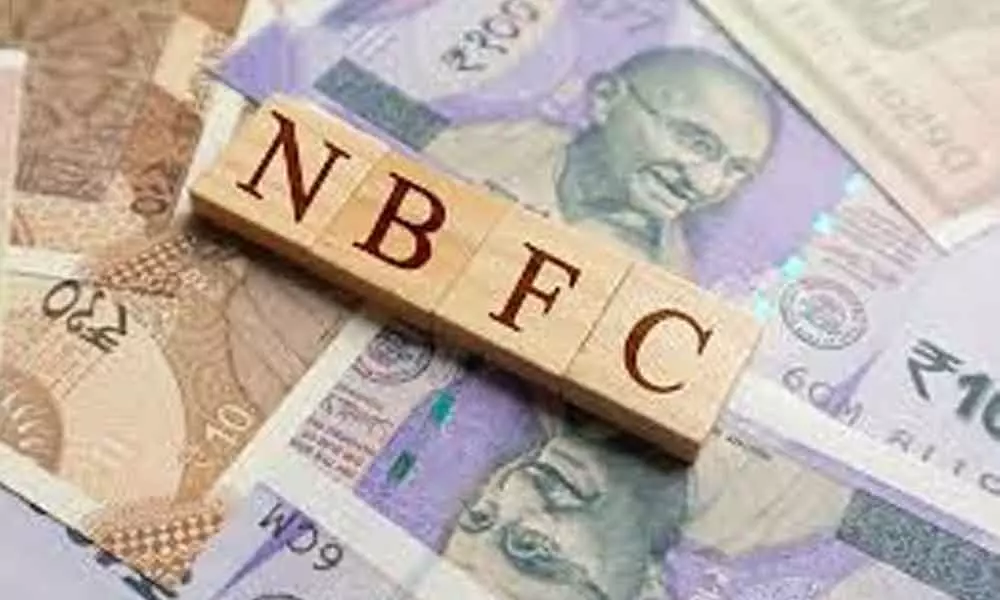NBFC sector stares at a breakdown

There seems to be a divide brewing within industry stakeholders and market watchers on whether or not to support the cash-strapped NBFC sector; which stares at a near breakdown without new relief measures.
There seems to be a divide brewing within industry stakeholders and market watchers on whether or not to support the cash-strapped NBFC sector; which stares at a near breakdown without new relief measures.
However, should the relief be a part of Covid-19 package or not is the going concern, with many stakeholders pointing out other sectors which are also in dire need of help.
At present, the coronavirus crisis again lays bare the wounds in the shadow-banking sector, and the financial companies staring at a mega default of around Rs 1.75 lakh crore.
In a recent report, rating agency CRISIL said that the liqudity cover available with CRISIL-rated non-banking financial companies will decline sharply if they cannot avail on their own bank borrowings the moratorium announced by the Reserve Bank of India (RBI) in its "Covid-19 Regulatory Package".
It noted that NBFCs face a double whammy because they are offering moratorium to customers despite not getting one themselves from their lender-banks. That will put significant pressure on liquidity profiles of many NBFCs, it added.
"CRISIL's analysis of NBFCs shows liquidity pressure will increase for nearly a quarter of them if collections do not pick up by June 2020. These NBFCs have Rs 1.75 lakh crore of debt obligations maturing by then," it said.
Another rating agency Acuite Ratings has said that while the gross advances of the NBFC sector stood at Rs 22.76 lakh crore as on March 31, 2019, retail NBFCs constituted Rs 14.48 lakh crore or 64 per cent of gross advances and the selected 11 NBFCs together constitute 43 per cent of these retail NBFC portfolio as on March 31, 2019.
It noted that the loans of retail NBFCs are granular in nature and largely cater to self-employed borrower segment where the cash-flows highly are correlated to the economic activity levels and therefore, inherently more volatile as compared to that of salaried individuals.
"One important segment in retail NBFCs is new or used vehicle finance for transport operators, small businesses, farmers and self-employed individuals. Their lending portfolio also includes small and medium enterprises where the ticket size is higher, typically up to Rs 5 crore.
Clearly, the economic disruption brought about by the Covid lockdown will have a severe impact on the incomes of such borrowers for several months depending on the intensity of the outbreak," said that Acuite report.
Since the RBI has provided a three month moratorium framework (March-May 2020) for banks and NBFCs, almost all retail NBFCs are expected to provide such a moratorium to their borrowers.
While this is likely to provide a temporary reprieve to the retail borrowers of the NBFCs, it is likely to have significant implications for their liquidity and businesses in our opinion in FY21, it said.
Acuite's analysis of the top 11 retain NBFCs in India highlighted that almost 60 per cent of their borrowings (excluding securitisation) are from non-bank sources and require continuity in debt servicing.
It estimates the refinancing requirement for these 11 retail large NBFCs at around Rs 10,000-20,000 crore to avoid any challenges in their debt servicing and to sustain their operations.
Suman Chowdhury, Chief Analytical Officer, Acuite Ratings & Research, said: "The aggregated debt repayment including interest for the top 11 retail NBFCs in first quarter of FY21 is estimated to be between Rs 40,000-60,000 crore while the cash reserves are estimated to be around Rs 45,000 crore.
It is apparent that many of these NBFCs would find it difficult to manage their cash flows including their operating expenses during the next three months unless they get access to additional bank lines or refinance".
Further, industry body Ficci has also suggested for a special liquidity line to NBFCs from banks as well as a significant allocation from the TLTRO operations mandatorily flowing to the NBFCs, this could be implemented in the following ways.
In a presentation, Ficci recommended an additional 10 per cent loan by banks under a special Covid-19 programme. An amount of 10 per cent of total borrowings as refinance against existing NCDs issued by the NBFC and HFCs, it said.
NR Bhanumurthy, Professor of National Institute of Public Finance and Policy also said that this is not the government to look into the regulatory issues much and NBFCs also require support as other segments, more so as they were already going through a liquidity crisis.
However, there are some concerns regarding the supported viable for the government and the RBI towards the NBFCs given their already feeble financial status and the recent instances of corporate misgovernance and liquidity crisis.
Chief Economist at HDFC Bank said that currently, all the sectors which have genuine needs should be looked into and provided with relief, and merely sticking to NBFCs would not be beneficial for the economy.
"There are all sorts of claims on the government's resources which are limited. Now it's no longer about NBFCs, there are the MFIs (micro-finance institutions), then there are actual sectors like civil aviation, hospitality, part of the MSME sector which of course is funded partly by the NBFCs," he said.
Barua added that there have been much more claimants on the RBI's and the government's resources, be it fiscal or monetary.
"NBFC's deserve some kind of a supporting but they have also been some kind of a problem for the past year and a half and now we have other segments to also consider.
MFIs for instance I think they are very actively involved in reaching credit to the very poor who are likely to be affected the most by the coronavirus," he said.
He said that currently, it is much more than just about the NBFCs and the resources are limited, so the government will have to think about how much to give them and how much to others who have a very genuine need for financial resources be it from a fiscal source or from monetary sources.








